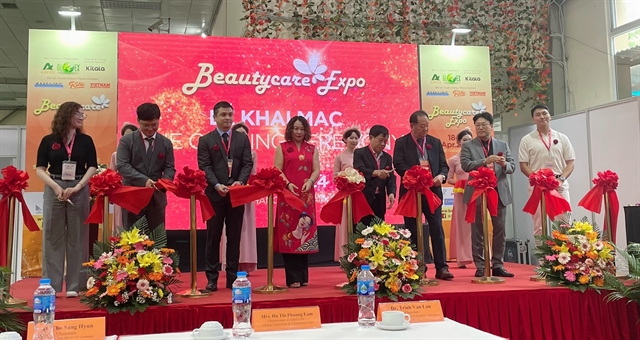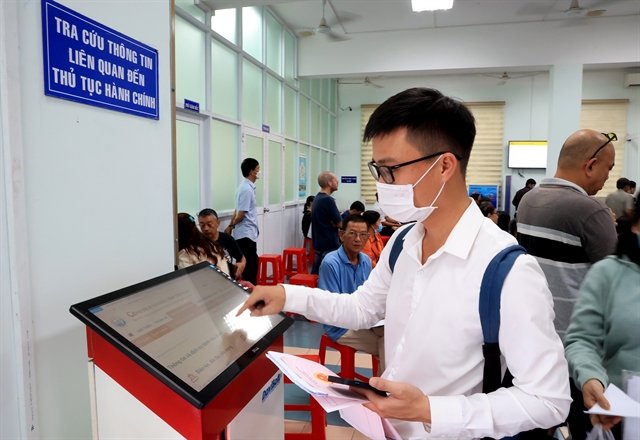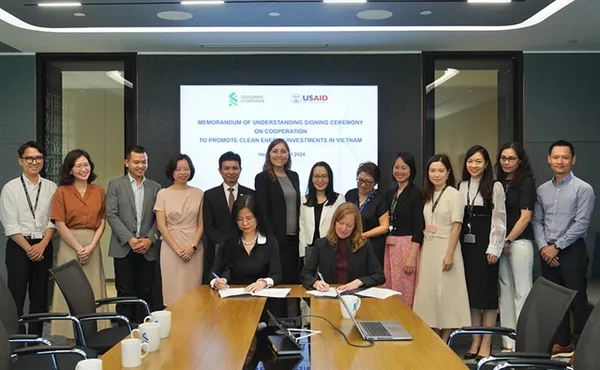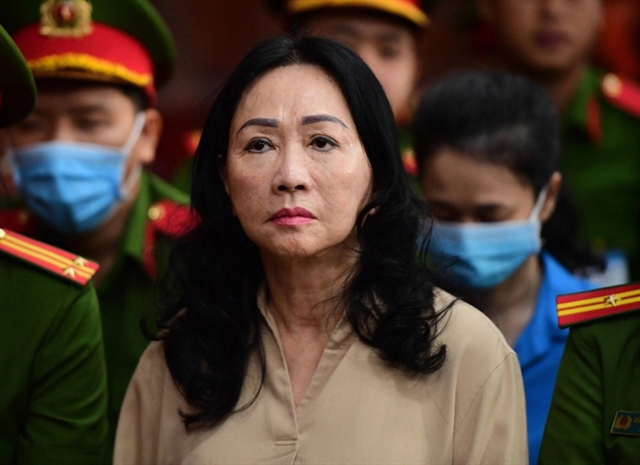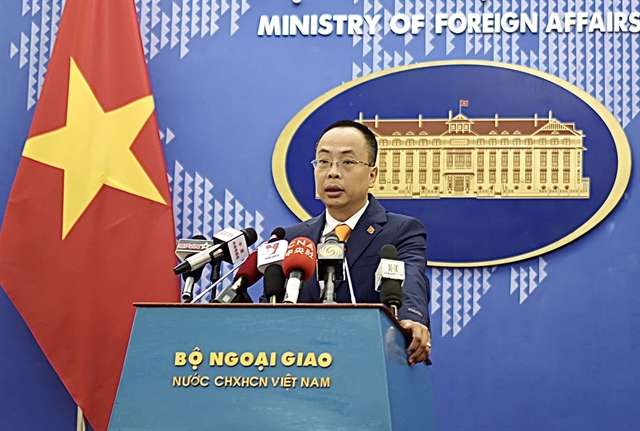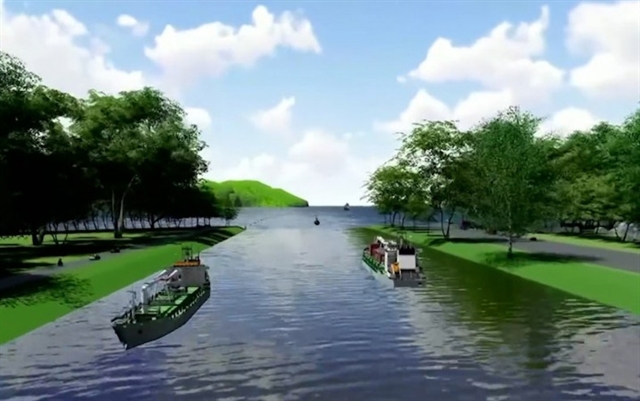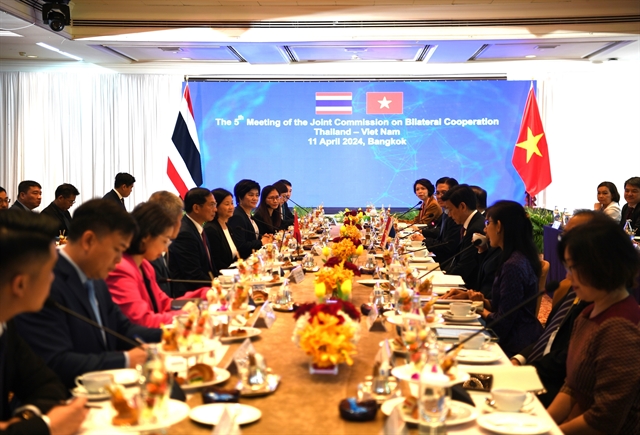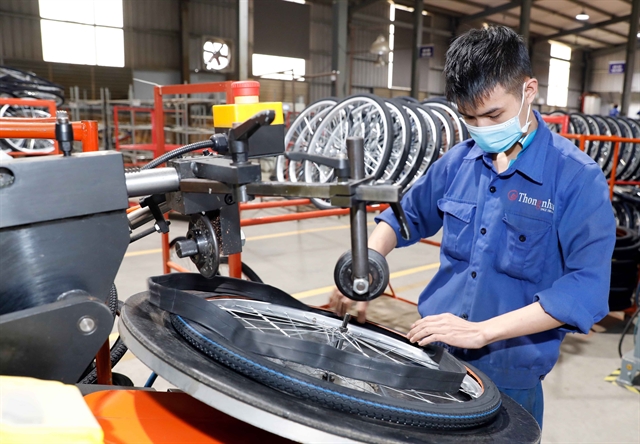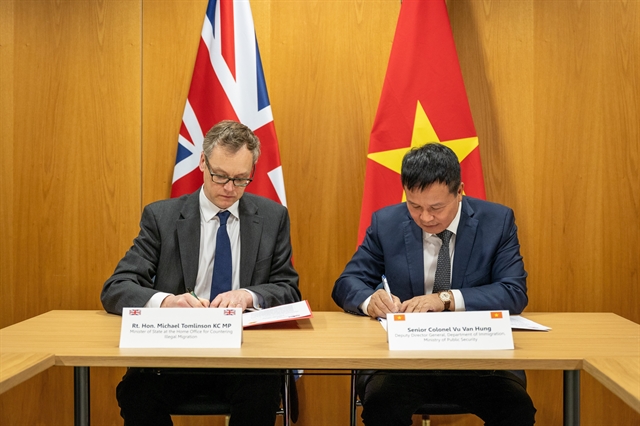 Politics & Laws
Politics & Laws

Deputy Minister of National Defence of Việt Nam, Lieutenant General Nguyễn Chí Vịnh, has called nations to co-operate, build trust and express goodwill to resolve all issues in the region based on international law and by means of peace.

|
| Deputy Minister of National Defence of Việt Nam, Lieutenant General Nguyễn Chí Vịnh, chairs the 17th ASEAN Regional Forum Security Policy Conference (ASPC 17) on Wednesday. — VNS Photos Hồng Minh |
HÀ NỘI — Deputy Minister of National Defence of Việt Nam, Lieutenant General Nguyễn Chí Vịnh, has called nations to co-operate, build trust and express goodwill to resolve all issues in the region based on international law and by means of peace.
Speaking at the 17th ASEAN Regional Forum Security Policy Conference (ASPC 17) on Wednesday, Vịnh noted that cybersecurity, the nuclear issue on the Korean peninsula and maritime security, of which the security in the South China Sea (called East Sea by Việt Nam) are hot issues in the region, saying all should be solved in a spirit of goodwill.
He said as the current COVID-19 pandemic had shown the fragility of the world to the effects of non-traditional security threats, countries needed to work together to repel the disease.
“In this effort, the defence co-operation should go into practice, create peace and build a strategic interest base to enhance co-operation in all areas," he said.
He noted that while the COVID-19 pandemic has attracted the attention of the world, other traditional and non-traditional security threats still exist.
“Therefore, in addition to disease prevention, countries should continue to pay attention not to let other security threats affect the peace and stability of the region,” he stressed.
During the video conference, delegates from 26 partner countries within the ASEAN Regional Forum (ARF) and the ASEAN Secretariat highly appreciated the role of multilateral mechanisms such as ASPC and ARF in promoting the building of trust among nations and upholding ASEAN's central role in the region.
Emphasising that the SARS-CoV-2 virus was small but did not distinguish borders, rich and poor, they called the COVID-19 pandemic an unprecedented challenge to the world that no country can solve by itself. Amid the COVID-19 pandemic, the delegates said other security challenges such as terrorism, maritime security, cybersecurity and nuclear issues should not be overlooked. They highlighted solidarity, co-operation and responsibility with the international community as the main weapons to deal with common security challenges, including the COVID-19 pandemic.
At the conference, representatives from Japan and the EU expressed concern that in the context of the COVID-19 pandemic, unilateral actions still affected the security and stability in the region.
Others welcomed the Declaration of President of the 36th ASEAN Summit, in which, ASEAN leaders affirmed the importance of maintaining and promoting peace, security, stability, safety, freedom of navigation and overflight in the South China Sea, ensuring the South China Sea is a sea of peace, stability and prosperity. They emphasised the importance of full and effective implementation of the Declaration on the Conduct of Parties in the South China Sea (DOC) and soon developing an effective and substantive and appropriate Code of Conduct in the South China Sea (COC) with international laws, including the 1982 United Nations Convention on the Law of the Sea (UNCLOS).
Delegates also discussed strengthening connectivity between ARF and the ASEAN Defence Ministers Meeting Plus as well as strengthening the role of defence co-operation within the ARF framework.
Vietnamese defence deputy minister Vịnh suggested defence representatives work with the respective foreign ministries regarding strengthening the connectivity with the ARF mechanism.
Vịnh emphasised that ASPC 17 was a specific expression of the theme of the ASEAN Year 2020 as 'Cohesive and Responsive' when the situation of COVID-19 pandemic temporarily caused difficulties for the organisation to meet, as well as participate in ASEAN activities.
“This conference has received constructive and collaborative participation from delegates. We have also felt our shared desire for a peaceful, stable region that benefits all nations. We are also all ready to join in co-operation for that purpose. We are confident that the content we discuss at the conference will continue to maintain the momentum of co-operation in ARF in general and ARF defence co-operation in particular,” he said.
ASPC is a high-level forum of defence co-operation within the ARF with the participation of deputy defence ministers or the equivalent and defence officials from 27 ARF members. ASPC has been an annual ARF activity since 2004. ASPC has the main goals of increasing the participation of ARF defence officials and co-operating on trust-building measures in military within ARF, open new channels of dialogue and exchange between defence officials, diplomats, military research experts, promoting mutual trust and understanding among defence officials. — VNS
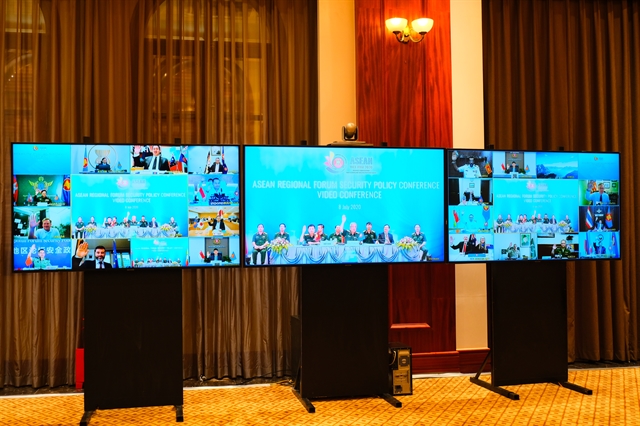
|
| Delegates raise their hands at the closing video conference to show their determination to meet the ASPC 17's goals. |


